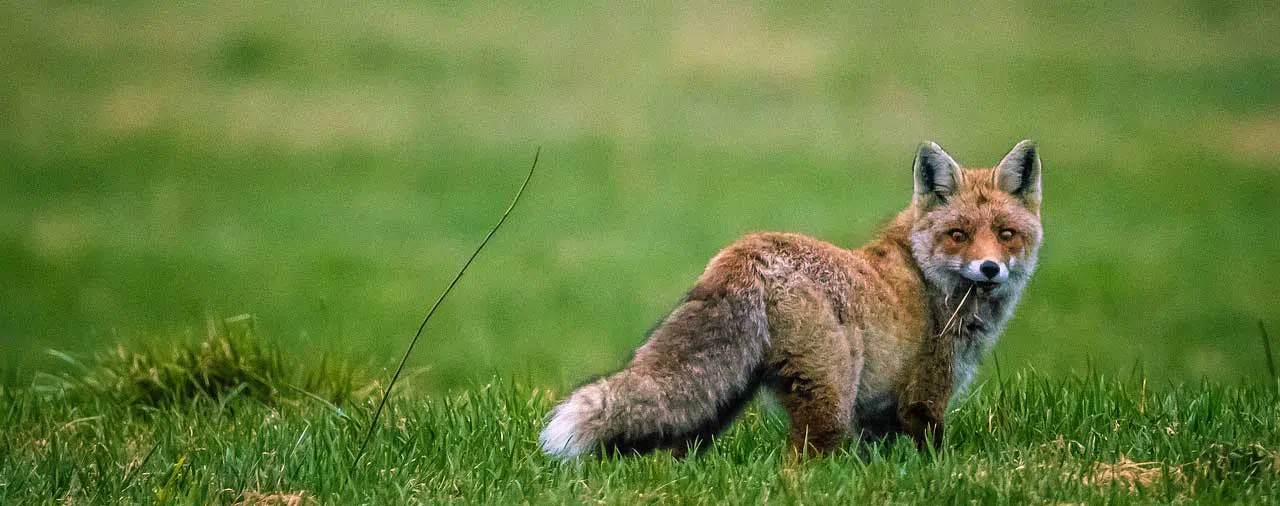In many cultures, the fox is seen as a sign of good luck, prosperity, resilience, and intelligence. It is believed to encourage a person to trust their intuition and look for creative solutions to issues in their life. However, if you're a poultry farmer, the appearance of a fox is troublesome and decidedly not a sign of good luck. Chances are, that your flock of birds is in grave danger. Let's have a look at what foxes actually eat.

What Do Foxes Eat?: A Fox's Diet
Foxes have an incredibly diverse diet. They are not carnivores, as you may have been led to believe, but omnivores. This means, they not only dine on meat, but enjoy tasty fruits and berries, too. Additionally, they do some scavenging - thus being part of Mother Nature's clean up crew. Foxes are nothing, if not adabtable and opportunistic, which is why we not only find them in the deep forest, but also in suburban neighbourhoods.
Are Foxes Opportunistic Feeders?
The answer is a resounding Yes! If around a poultry farm, they'll eat birds. If they are at home in the woodlands, small mammals are on the menu. If they've become accustomed to suburban life, they'll raid your trash bins and head to the garden for dessert. To answer "What do foxes eat?" we very much have to consider where they live and what their habitat looks like.
What Animals do Foxes Eat? Common Prey for Foxes
Small Mammals
As long as it is small enough to be carried back to a den, anything goes. The most common prey and probably answering "What do foxes like to eat", though, are rodents (this includes rats, mice, and squirrels) and rabbits/hares. Fox cubs are weaned around the 1 month mark and both parents will bring back small game for the cubs after that. Under the watchful eyes of their parents and through play, the cubs learn to identify prey and how to eat it. Mum and Dad will continue to feed the cubs for about 2 months, while also teaching them to hunt for themselves, by stalking mice in the long grass. So, what do baby foxes eat? Anything, their parents offer! :)
Birds and Eggs
Foxes will raid nests of ground nesting sea birds, domestic poultry, like chicken, quail, or even ducks, pigeons, and any game bird they can get their paws on.
Insects and Invertebrates
Indeed, insect larvae, craneflies, moths, earthworms, snails, crickets, caterpillars, grasshoppers, beetles and crayfish all make up parts of what foxes eat.
Fish
A fox will also grab a lake trout, if opportunity presents itself. Also, dead fish are consumed, if available. Again, while they are very skilled hunters, foxes are also opportunistic and won't turn down a 'free' meal.
Fruits and Vegetables
Foxes have been known to dig up some root vegetables and even snack on corn and assorted grains. And for dessert: Berries! Berries, including blueberries, blackberries, and raspberries make for a delightful snack or dessert. Also, cherries, apples, plums, grapes, and even acorns get gobbled up.
The Challenges of Human Interaction and Urban Environments
Trash Raiding
While not as prolific as the urban trash panda, the fox also resorts to rummaging through your trash for tasty leftovers. And as with all other wildlife, your yard is not a good place for foxes to hang out. So, if what do foxes eat? points to your trash bin.. it's time to secure lids and/or consider storing it inside.
Garden Predation
Your root vegetables may be at risk here, and with that comes a whole lot of digging. More importantly, your berry bushes and orchards are an even bigger temptation for a hungry fox. If you are in need of exclusion methods to keep foxes from visiting your yard and garden, it may be time to call in a Professional Animal Removal Company like Hawkeye.
Pet Interactions
Foxes can actually form friendships with some domestic pets. One of our employees had a domestic cat/fox pairing... a friendship that lasted for years. Or, they can fight. In which case, rabies becomes a concern. Foxes are known rabies carriers.
Transmission of Diseases
As mentioned, rabies is a concern. Rabies is mainly transmitted through saliva of an infected animal. This can be through a bite, or through something as simple as an infected animal drinking from your pet's outdoor water bowl and contaminating the water. Other communicable diseases incude visceral leishmaniasis, hydatidosis, toxocariasis, and trichinellosis. If you have encountered a fox you suspect may be sick, contact the Canadian Wildlife Health Cooperative (CWHC).
Traffic Accidents
Spotting a fox at dusk, one might think of a messenger from another realm. This is a lovely experience. Seeing a fox dead by the side of the road after it was hit by a car, is terribly sad. Especially in developed areas, a mother fox may have no choice but to cross a busy road to find and deliver food to her pups.
For Any Of Your Fox Problems, Call Hawkeye!
Here, at Hawkeye Bird & Animal Control, we are familiar with removing a fox if necessary and help you create and maintain exclusions to avoid repeat offenders. Contact us today for a free quote!















